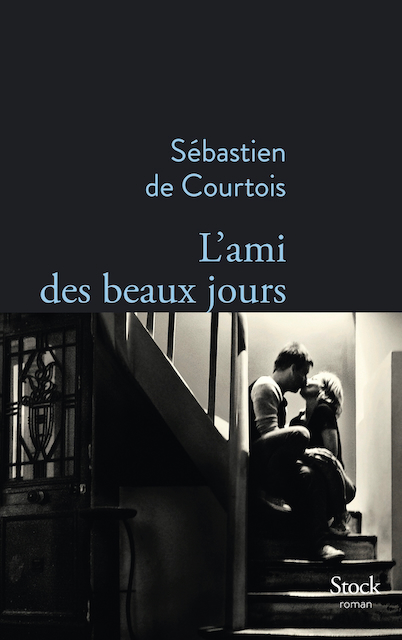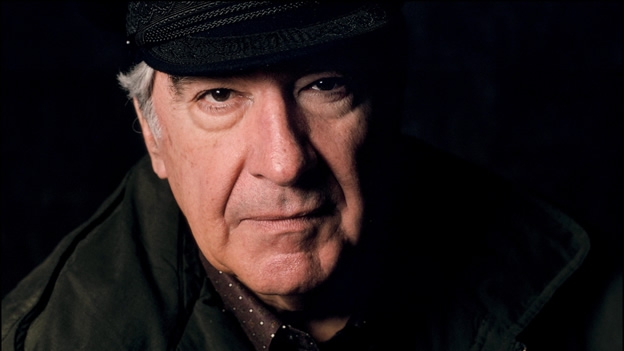 There is a nostalgia for a lost paradise. We all feel it, more or less; it connects us to original sin and to the fall. This disease torments pure souls. She heels and waves. Illness of youth if ever there was one, romantic madness, this nostalgia is at the heart of Sébastien de Courtois' novel, L'ami des beaux jours .
There is a nostalgia for a lost paradise. We all feel it, more or less; it connects us to original sin and to the fall. This disease torments pure souls. She heels and waves. Illness of youth if ever there was one, romantic madness, this nostalgia is at the heart of Sébastien de Courtois' novel, L'ami des beaux jours .
Tag: literature
Letter to my friend Alvaro Mutis

One day in the 1990s, we were walking down the street, we were leaving the Hôtel des Saints-Pères, and Alvaro Mutis 1 stopped short. We were almost at the corner of the rue de Grenelle, and he said to me: “Emmanuel, I have the impression that we walked like this together a long time ago in a street in Cadiz. And we were having the same discussion. I confess that I no longer remember our remarks. I am certain that if Alvaro Mutis were still alive, he would remember it.
Alvaro Mutis had a special relationship with life. He lived by handling memory and immediate reality. He always put one foot in one and one foot in the other. With him, these two worlds never left each other, they were close, went hand in hand, like conjoined twins, like a one-way life, for the better. Alvaro Mutis was living his life and other lives, lives he had lived before, or would live later. Above all, Alvaro Mutis lived, at all times, accompanied by a young boy, this still child was called Alvarito, he was always with us. Carmen, Alvaro's wife, accepted his presence even though it was not her son. I have never met someone like Alvaro Mutis. I mean there was something terrifying and intriguing about his presence, his presence as a child next to the same middle-aged adult. I told him that often. I told him that Bernanos, whom he loved, also had to live like this with the incarnated afterglow of a young self by his side.
I come here to tell what I know of Alvaro Mutis, Maqroll el Gaviero and a few others… These last years have been slow and long. We corresponded much less. He no longer wrote. He hadn't written for so long. The tremors had taken over. A certain emptiness too. Everything was doomed to disappear like the stump of a dead tree that disappeared in a week in the damp furnace of the Amsud. Everything had to pass, and this spectacle of life in action never ceased to amaze Alvaro Mutis throughout the ninety years he spent on this earth.
A year that ends...
Over a year that ends, we often take a stealthy look. Do not dwell too much. You never know how many things that we forced to bury the memory could once again appear, like these impromptu, malpolated and irritating "pop -up" windows on the internet. The exercise that can be carried out is to concentrate very strongly to extract important events; The events that will understand why they have counted so much; How they proved to be decisive. It is also important not to lose sight of the moment when the event appears.
Commemorative phrase
A friend contacted me to ask me for the exact quote from Ernst Jünger (taken from Orages d'acier ) that we liked to repeat among officers of the 2nd foreign infantry regiment. I write it on this blog as I remember that General Antoine Lecerf liked this quote and it fits him like a glove:
It has been given to us to live in the invisible rays of great feelings, this will remain our priceless privilege.
Tribute to Jean-Marie Domenach
By rereading notes taken years ago during reading the return of the tragic of Jean-Marie Domenach , I remember our meeting. I see him arriving in my little studio of the fork, asking me a glass of wine and I, starting to explain to him by the menu the orientation that I wanted to give to our interview. And he looked at me with round eyes, still rounding, and suddenly throwing me enthusiastic: "But you have read my books ... I am not used to meeting journalists who have read my books".
This meeting will remain as one of the very beautiful encounters I have had as a journalist. We will discuss more than two hours of morality and moralism, Saint-Just and Nietzsche. From God too. Above all from God.
Confession of a player (his life told by Maradona)
The life of Diego Armando Maradona is a tale. Because Maradona always remained a child. It is therefore a tale for children and as such it is edifying. We must say to all those who say that Maradona did not show himself to be exemplary enough for a sportsman of this ilk that they are wrong. It is the greatest modern exemplar history. It must be told again and again.
Read the rest of "a player's confession (his life told by Maradona)"